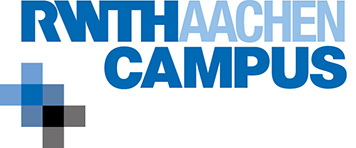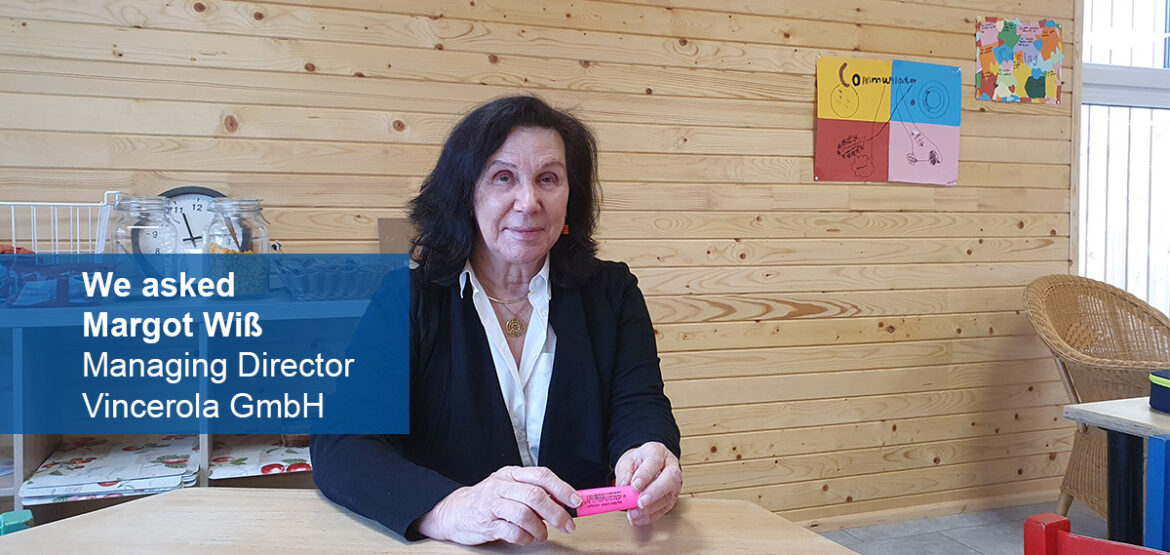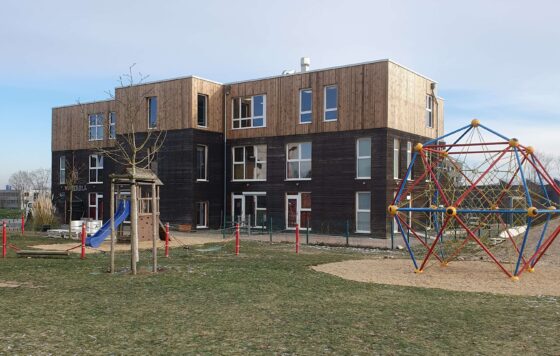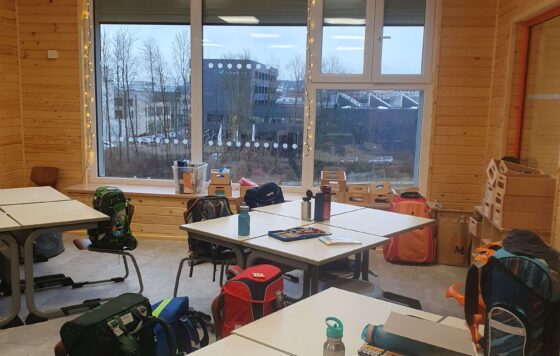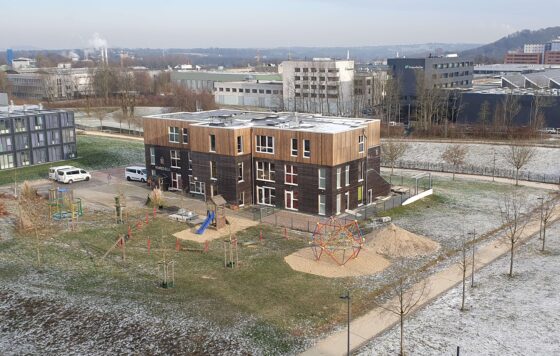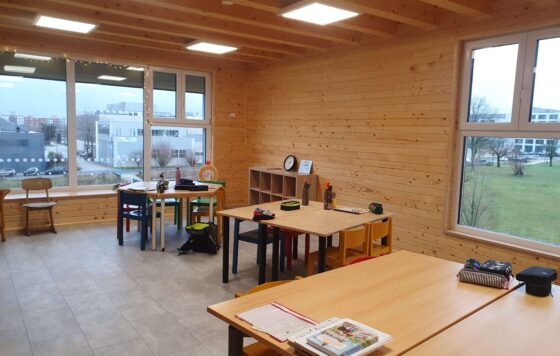10. January 2024
Added to this is the generally growing interest in multilingual education. We now know that the early acquisition of a second language stimulates and enriches children’s overall development. It is our wish that children who have attended a bilingual nursery can also attend a bilingual elementary school, so that the language skills that the children have acquired in nursery do not disappear again. Thanks to the development of our elementary school, children can now be taught bilingually in German and English from nursery through our elementary school to secondary school.
The Kaiser-Karls-Gymnasium, for example, offers enhanced English lessons in Years 5 and 6 and bilingual subject lessons from Year 7 onwards. A bilingual Abitur is also possible there. However, there are other grammar schools in Aachen with bilingual teaching areas.
At school, we also incorporate many aspects of the so-called “IB-PYP”, i.e. the “IB-Primary Years Program”, a curriculum for international schools. As an alternative school, we integrate these approaches into the regular NRW curriculum. We have the same status as a state school, are subject to school supervision and are partially refinanced by the state.
We are currently integrating ourselves into the Aachen school world with regard to school management conferences, meetings with other school management teams and the municipal education authority. Our wish is to network even more with other schools in the future and to enrich the Aachen school landscape with our profile as a bilingual, international school.
Although there are no lessons during the vacations, there is almost continuous care: we are only closed for three weeks during the summer vacations and between Christmas and New Year – otherwise the children are looked after all year round, for example in sports or art camps. Another special feature is that our doors are open from 7 am to 6 pm for both nursery and primary school children. This allows us to offer parents a great deal of flexibility.
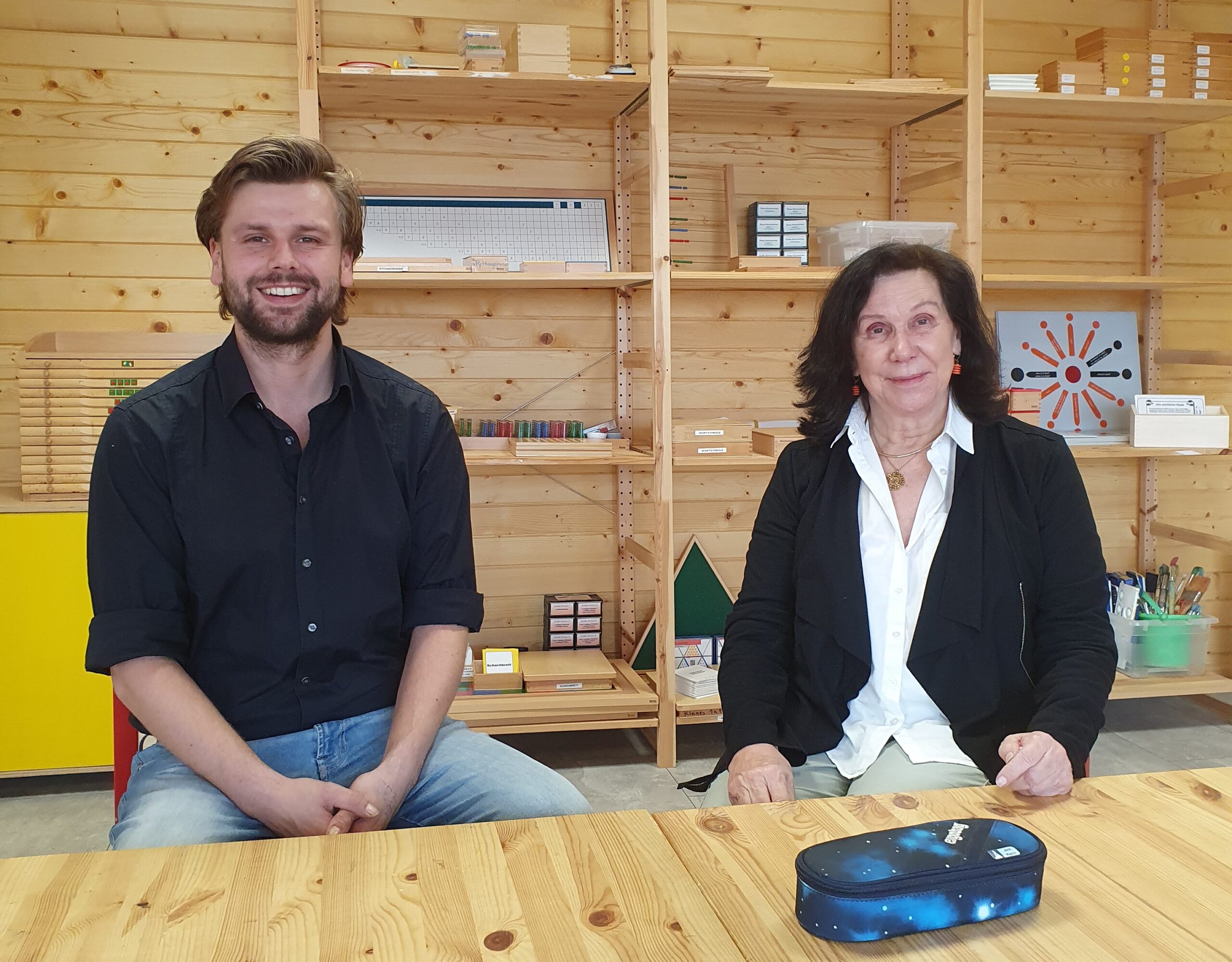
Campus GmbH

